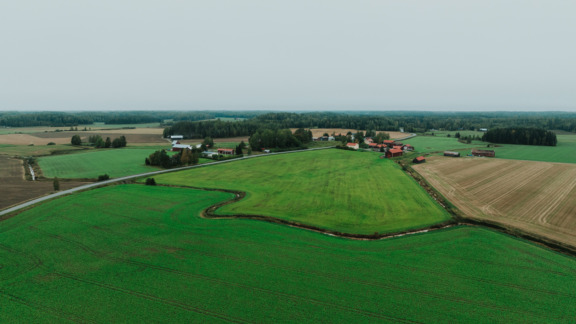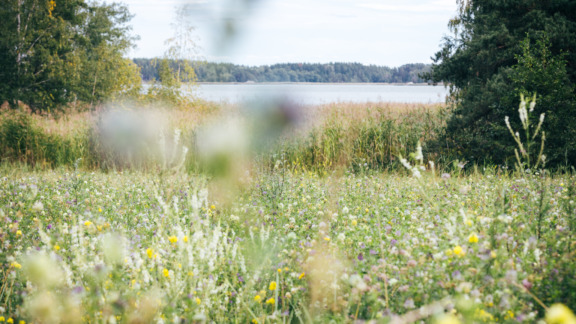PRESS RELEASE: Atria and BSAG to cooperate
Atria’s Baltic Sea Commitment aims at improving the sustainability of livestock production
Atria has made a Baltic Sea Commitment to the Baltic Sea Action Group with the aim of improving the environmentally sustainable food chain and livestock production together with Atria’s contract producers and A-Rehu’s contract farmers. The commitment is part of Atria’s sustainability strategy, which aims at carbon-neutral food production.
Atria’s five-year commitment consists of three parts:
- Atria is committed to reducing the environmental impact of livestock production by, for example, optimising feeding, utilising food industry side streams, improving nutrient cycling and by using the best production methods utilising data from the said research and development projects.
- Atria will advance cooperation between livestock farms and arable farms to enhance nutrient cycling through improved manure application, make more efficient use of the current agricultural area, reduce emissions from peatlands, increase the production of domestic protein crops and improve crop rotation.
- Atria promotes the introduction of cultivation practices that improve the soil and enhance carbon sequestration on livestock farms and arable farms by training its own experts and sharing best practices and communicating research results.
– We share common concerns about climate change, which calls for action from all of us. Atria wants to be part of the solution and that is why a carbon-neutral food chain is our main goal. We believe that this will be possible by 2035, says Merja Leino, Senior Vice President, Sustainability, at Atria Group.
– Food chain companies like Atria have a direct opportunity to influence both practical emissions and wider changes in the food system. Atria’s five-year Baltic Sea Commitment includes both immediate actions and more research and development to promote a circular economy and carbon neutrality, says Michaela Ramm-Schmidt, CEO of BSAG.
– For the Baltic Sea, more effective recycling of nutrients and good soil management will provide immediate help. Carbon neutrality requires for example actions on peatlands and imported soya to be replaced by domestic protein crops, Ramm-Schmidt continues.
– Food contributes about 20% of the carbon footprint of consumption. The most significant environmental impacts of food production in the whole chain are in primary production. Co-operation with BSAG will provide us the latest research information and support to put this knowledge into practice to reduce the environmental impact of arable farming and meat production. We are very pleased that the cooperation has started, says Leino.
Read more about Sustainable Atria: www.atria.fi/en/group/corporate-responsibility/
For more information:
Merja Leino, Senior Vice President, Sustainability, Atria Plc, tel. +358 40 580 1210, merja.leino@atria.com
Michaela Ramm-Schmidt, CEO, BSAG, tel. +358 40 525 0509 michaela.ramm-schmidt@bsag.fi



